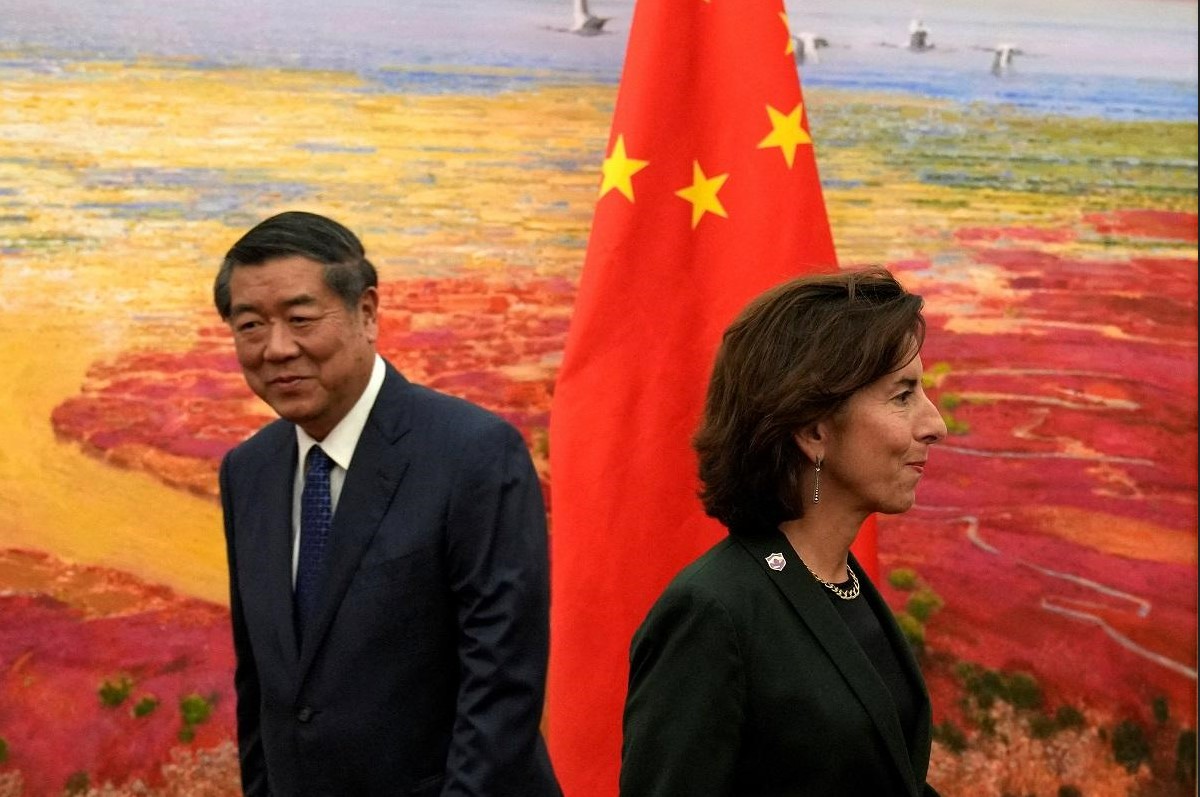It is common knowledge that communication between the United States and China is poor at present. However, the United States Secretary of Commerce, Gina Raimondo, stated that she and her Chinese counterpart, Wang Wentao, made substantial efforts toward changing that at their meeting on Monday in Beijing.

U.S. Commerce Secretary Gina Raimondo arrives for a meeting with her Chinese counterpart Wang Wentao (Source: REUTERS)
National Security Talks US-China Will Not be Affected by Their Cold War in Trade Industry
Over the course of the past year, the United States has denied China access to cutting-edge technology by employing export controls and investment restrictions. Export controls have been criticized by China as being part of a new containment policy, despite the fact that the National Security Advisor Jake Sullivan has referred to them as the “new strategic asset” for imposing “costs on adversaries” and maintaining the United States’ position as far ahead as is humanly possible in significant technology.
Raimondo, for her part, is attempting to limit the reach of export controls and investment restrictions by arguing that the majority of trade between the United States and China does not involve issues pertaining to national security. She has high hopes that the discussions would result in an increase in exports to China of goods that are not tied to national security, such as agricultural goods, health and beauty products, and entertainment services. As a hint that Washington intended this meeting to be about growing collaboration and de-escalating trade tensions, 27 Chinese companies were removed from a blacklist that limited access to US technology before Raimondo’s travel. The blacklist had been in place to limit access to US technology.
The two Secretaries of Commerce improved communication by participating in trade information-sharing events and working groups. This shows how important the US-China economic relationship is to both countries. China wants to revive international investment during its economic downturn, and Vice President Joe Biden wants to “de-risk” the relationship. This requires coordination and communication while exploiting China’s vast market and preventing Beijing from acquiring crucial technologies.
READ ALSO: Decision in US-China Solar Trade Probe Will Restructure Billions in Trade

















































